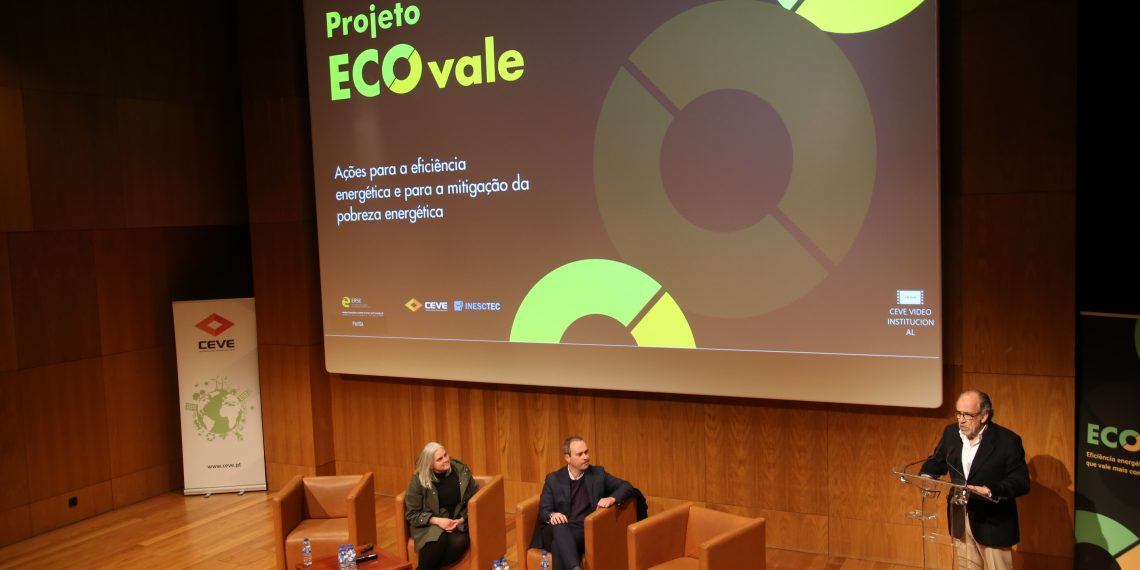Portugal is the fifth country in the European Union (EU) at a greatest risk of energy poverty, according to recent European data and studies, which name our country as the worst in the EU concerning the percentage of children exposed to phenomena like humidity, darkness, cold and/or noise. To address a challenge launched by ERSE – Energy Services Regulatory Authority, INESC TEC joined CEVE – Cooperativa Eléctrica do Vale d’Este to support this entity in developing and implementing a set of actions to raise awareness of energy poverty in the municipalities of Vila Nova de Famalicão and Barcelos.
The EcoVale project was presented on February 23, at Vila Nova de Famalicão’s Casa das Artes, with the participants discussing the practices of efficient energy consumption, namely in terms of digitalisation and adequate use of equipment.
“Inefficient buildings and equipment, high energy costs and insufficient energy literacy are some of the factors that could justify said statistics”, mentioned Zenaida Mourão, researcher at INESC TEC Centre for Power and Energy Systems (CPES), and one of the speakers at the EcoVale kick-off event. “The impact of energy poverty goes beyond the health and well-being of individuals, like respiratory, cardiac and mental health issues. There’s a clear influence in terms of learning and level of education, as well as social integration. That is why it is so important to create social support mechanisms and targeted public policies”, she added.
However, there are further issues to address; there is a growing need for active intervention in changing energy-related behaviours, at educational and residential contexts. Alexandre Lucas, also a CPES researcher, clarified the participants about practical solutions for a more responsible energy consumption. According to him, “one can’t effectively manage anything they can’t measure”, justifying the opportunity that digitalisation presents for the mitigation of energy poverty. “There are several passive and active measures that can help us to increase efficiency in electricity and gas consumption. One of them involves the use of more efficient equipment, with several benefits, namely in terms of bills and costs”, he mentioned.
The project will simultaneously develop three types of activities for different target-audiences: training and awareness raising for adults, younger people, and children; development and implementation of an open innovation platform, and creation of energy efficiency clubs in schools. Close to 2200 younger people and children (from three to 18 years old) from 23 schools and day-care centres will be involved, but the project team aims at a broader dissemination of the initiative’s message and results. Moreover, the project activities include four workshops open to the entire population, which will act as a forum for new ideas, as well as several other dissemination events.
Luís Macedo, Chairman of the Board of Directors of CEVE, believes that the EcoVale project could be an important step in the mitigation of energy poverty, appealing to the active participation of the entire community.
The EcoVale project is promoted by CEVE – Cooperativa Eléctrica do Vale d’Este and funded by ERSE under the Consumption Efficiency Promotion Plan (PPEC); INESC TEC is responsible for providing scientific support.
The researchers mentioned in this news piece are associated with INESC TEC.




 News, current topics, curiosities and so much more about INESC TEC and its community!
News, current topics, curiosities and so much more about INESC TEC and its community!